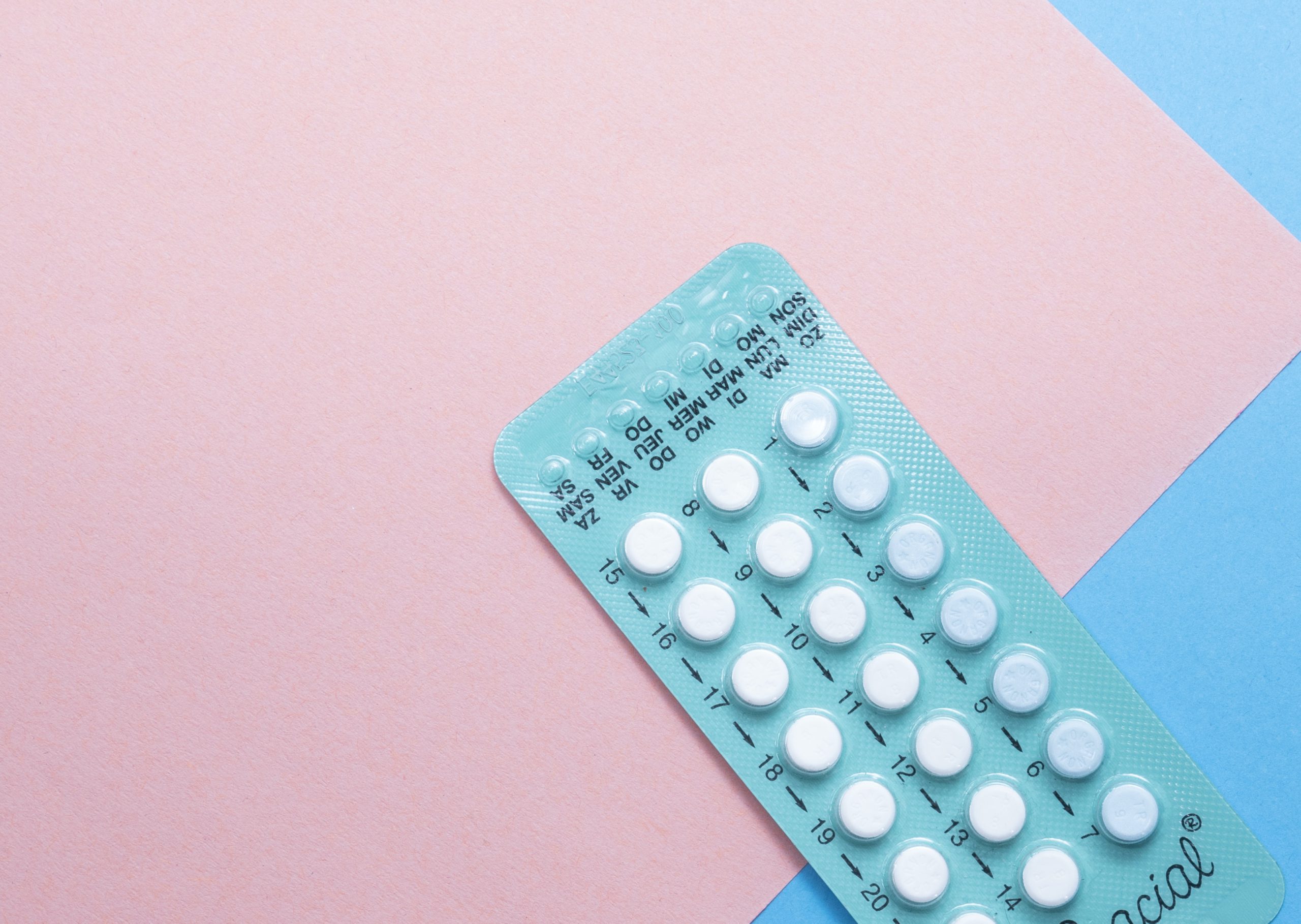In the article “Does NAC Increase Estrogen?” you will gain valuable insights into the potential effects of N-Acetyl L-Cysteine (NAC) on estrogen levels. As you delve into this topic, you’ll discover the numerous benefits of NAC, such as its antioxidant properties that combat free radicals, its ability to support liver function, and its role in strengthening the immune system. This captivating discussion will provide you with a comprehensive understanding of NAC’s effects on estrogen and its overall impact on your health and well-being.
Understanding N-Acetyl L-Cysteine (NAC)
What is N-Acetyl L-Cysteine?
N-Acetyl L-Cysteine, commonly known as NAC, is a form of the amino acid cysteine. It is an antioxidant and a precursor to glutathione, a powerful antioxidant in the body. NAC is often used as a dietary supplement to support various aspects of health. It has been studied for its potential benefits in treating respiratory conditions, liver diseases, mental health disorders, and more.
Benefits of N-Acetyl L-Cysteine
NAC offers a range of benefits due to its antioxidant properties and ability to boost glutathione levels. Some potential benefits of NAC include:
-
Support for respiratory health: NAC has been extensively studied for its effectiveness in relieving symptoms of respiratory conditions such as chronic obstructive pulmonary disease (COPD), asthma, and bronchitis.
-
Liver function support: NAC has shown promise in protecting the liver from toxins and promoting liver regeneration. It has been used as a potential treatment for acetaminophen overdose-induced liver damage.
-
Antioxidant and detoxification effects: NAC helps neutralize harmful free radicals in the body and supports detoxification processes. This may contribute to overall cellular health and protection against oxidative stress.
-
Mental health benefits: NAC has been studied for its potential role in improving symptoms of mental health conditions such as depression, bipolar disorder, and obsessive-compulsive disorder (OCD).
-
Immune system support: NAC may help strengthen the immune system by boosting glutathione levels, which can enhance immune function and protect against oxidative damage.
While these potential benefits are exciting, it is important to delve into the relationship between NAC and estrogen levels to fully understand its effects on the body.
The Role of Estrogen in the Body
What is Estrogen?
Estrogen is a group of hormones primarily responsible for the development and regulation of female reproductive system and secondary sexual characteristics. However, it is also present in males in lower quantities and plays a role in their overall health. Estrogen is produced primarily by the ovaries in women and in smaller amounts by the testes in men. It is involved in various physiological functions, including bone health, cardiovascular health, cognition, sexual function, and more.
Functions of Estrogen
Estrogen plays a crucial role in multiple aspects of health. Some key functions of estrogen include:
-
Reproductive health: Estrogen is essential for the development and maintenance of the female reproductive organs, including the uterus, vagina, and breasts. It helps regulate the menstrual cycle and supports the growth and maturation of eggs.
-
Bone health: Estrogen is important for maintaining healthy bones and protecting against bone loss. It helps regulate bone density and decreases the risk of osteoporosis, especially in postmenopausal women.
-
Cardiovascular health: Estrogen has a protective effect on the cardiovascular system. It helps maintain healthy cholesterol levels, promotes vasodilation, and reduces the risk of heart disease.
-
Cognitive function: Estrogen is believed to have a positive impact on cognitive function, particularly in areas related to memory and learning. It may help prevent cognitive decline and improve overall brain health.
-
Regulation of metabolism: Estrogen plays a role in regulating metabolism and body weight. It helps maintain a healthy balance between fat and lean body mass.
While estrogen is vital for many physiological processes, it is essential to understand the potential interactions between NAC and estrogen levels to ensure the safety and effectiveness of NAC supplementation.

Possible Interactions of NAC and Estrogen
Theoretical Effects of NAC on Estrogen
Some studies and theories suggest that NAC may have an impact on estrogen levels. One proposed mechanism is that NAC could potentially increase the production or availability of estrogen in the body. This is based on the fact that NAC can increase glutathione levels, which may influence estrogen metabolism.
Research on NAC and Estrogen
The research on the direct relationship between NAC and estrogen levels is limited. While some studies have explored the effects of NAC on reproductive health and hormonal balance, the results have been inconclusive and conflicting.
A study published in the Journal of Assisted Reproduction and Genetics in 2013 found that NAC supplementation did not significantly affect estradiol levels or follicular development in women undergoing in vitro fertilization (IVF) treatments. However, another study published in the Journal of Reproductive Medicine in 2018 suggested that NAC might enhance follicular growth and increase estradiol levels in polycystic ovary syndrome (PCOS) patients.
More research is needed to fully understand the potential interactions between NAC and estrogen and establish a clear cause-and-effect relationship.
Effect of NAC on Estrogen Levels
Evidence for Increased Estrogen Levels with NAC
Despite the limited direct research on NAC and estrogen levels, there is some evidence supporting the possibility of increased estrogen levels with NAC supplementation. A study published in the journal Molecular and Cellular Endocrinology in 2015 reported that NAC treatment elevated estrogen receptor expression in breast cancer cells in vitro. This suggests that NAC may have the potential to influence estrogen signaling pathways and indirectly affect estrogen levels.
Evidence Opposing Increased Estrogen Levels with NAC
On the other hand, some studies suggest that NAC supplementation does not lead to significant changes in estrogen levels. A study conducted on male rats and published in the Journal of Applied Physiology in 2012 found that NAC treatment did not affect circulating estrogen levels. Similarly, a study published in the Journal of Molecular Endocrinology in 2017 investigated the effects of NAC on estrogen synthesis in human ovarian granulosa cells and found no significant alterations.
The conflicting evidence highlights the need for more comprehensive research to determine the true effect of NAC on estrogen levels in humans.

Safety Considerations
Potential Risks of Increased Estrogen Levels
While the exact impact of NAC on estrogen levels is still unclear, it is important to consider the potential risks associated with increased estrogen levels. High estrogen levels may lead to hormonal imbalances and various health issues, including:
-
Breast cancer: Elevated estrogen levels have been linked to an increased risk of breast cancer development and recurrence. It is crucial to monitor estrogen levels to maintain a healthy hormonal balance.
-
Hormonal disruptions: Excessive estrogen can disrupt the delicate balance of hormones in the body, potentially causing symptoms such as irregular periods, mood swings, and hormonal acne.
-
Blood clot formation: Estrogen can promote blood clot formation, increasing the risk of deep vein thrombosis (DVT) and other blood clot-related complications.
-
Endometrial hyperplasia: Prolonged exposure to high estrogen levels without proper regulation can lead to abnormal thickening of the uterine lining, a condition known as endometrial hyperplasia. If left untreated, it may increase the risk of endometrial cancer.
It is important to consult with a healthcare professional before starting any supplementation or making significant changes to your hormone levels.
Precautions and Warnings
If you are considering NAC supplementation, here are some precautions and warnings to keep in mind:
-
Medical conditions: Individuals with pre-existing medical conditions, especially those related to hormone balance and estrogen-related conditions, should consult with their healthcare provider before taking NAC.
-
Medications: NAC may interact with certain medications, including estrogen replacements, hormonal contraceptives, and medications used to treat hormone-related conditions. Discuss potential interactions with your healthcare provider.
-
Dosage: Follow the recommended dosage guidelines provided by the manufacturer or healthcare professional. Taking excessive amounts of any supplement may lead to unwanted side effects.
-
Individual differences: Each person’s response to NAC supplementation may vary. It is important to monitor your own body’s reactions and consult with a healthcare professional if you experience any unusual symptoms or changes.
Alternative Methods to Increase Estrogen
Natural Ways to Boost Estrogen Levels
If you are looking for natural ways to boost estrogen levels, consider the following:
-
Balanced diet: Include foods rich in phytoestrogens, such as soybeans, flaxseeds, and lentils, in your diet. These plant compounds mimic estrogen in the body and may help support hormonal balance.
-
Regular exercise: Engaging in regular physical activity can help regulate hormone levels, including estrogen. Aim for a balanced exercise routine that combines cardiovascular exercises, strength training, and flexibility exercises.
-
Stress management: Chronic stress can disrupt hormone balance. Practice stress management techniques, such as meditation, deep breathing exercises, and yoga, to support overall hormonal health.
Medical Interventions for Low Estrogen
If you have a diagnosed estrogen deficiency or require medical intervention for hormonal imbalances, consult with your healthcare provider. They may recommend hormone replacement therapy (HRT) or other medical interventions to address your specific needs. HRT involves the use of synthetic or natural estrogen to supplement the body’s hormone levels.
It is important to work closely with a medical professional to determine the most appropriate course of action for your specific situation.

Conclusion
While N-Acetyl L-Cysteine (NAC) offers a promising range of health benefits, the potential interactions between NAC and estrogen levels remain uncertain. While some studies suggest a possible influence of NAC on estrogen, the evidence is not conclusive.
Before starting any supplementation, it is crucial to consult with a healthcare professional, especially if you have pre-existing medical conditions or hormonal imbalances. Natural ways to support estrogen levels, such as a balanced diet and regular exercise, can also be explored in conjunction with professional guidance.
Remember that everyone’s response to NAC and estrogen balance may vary, and individual differences should be taken into account. The safety and effectiveness of NAC supplementation should be assessed on a case-by-case basis, prioritizing consultation with healthcare professionals.







